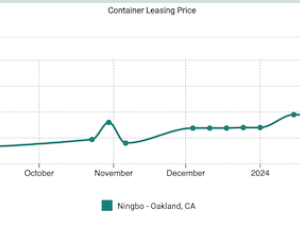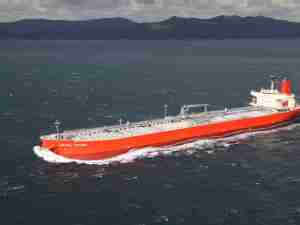POSCO backs rail, port plan for Baosteel Australia iron ore project
By: Reuters | Sep 11 2014 at 04:11 AM | Maritime
In a world awash with iron ore, Asian steel makers are still willing to sink money into new iron ore mines - as long as they are low cost and have their own ports and rail lines - to loosen the grip of the world’s giant producers.
China’s Baosteel and South Korea’s POSCO agreed on Thursday to push ahead with plans to develop a long-delayed $7 billion iron ore project in Western Australia, despite a slump in prices to five-year lows due to a glut of low-cost ore.
While a raft of other iron ore projects have been shelved, billionaire Gina Rinehart, backed by POSCO, is also set to start producing at a $10 billion project in the same region next year, another low-cost mine with its own rail lines and port.
“A long time ago we had joint ventures with BHP and Rio Tinto. Nowadays we are looking for junior miners with built-in infrastructure,” said a POSCO representative in Australia.
“POSCO is an end user, so we like to have a stable source of iron ore,” he said. He declined to be named due to company policy.
POSCO and investor American Metals & Coal International (AMCI), 50 percent owners of the West Pilbara Iron Ore project, said they had agreed to back a plan by Baosteel and Australia’s Aurizon Holdings Ltd to build rail lines and a port for the project.
Baosteel and Aurizon recently snared 50 percent of the API joint venture that owns the project following their A$1.4 billion takeover of its operator, Aquila Resources.
POSCO said the infrastructure agreement was an important step to kickstart the project, which has been stuck on the drawing board for more than five years, and expected it to be viable even if prices stayed below $90 a tonne.
A final investment decision will be made some time after January 2016.
TIMING UNCLEAR
The extent and speed of iron ore’s price fall caught many by surprise and put smaller miners like Atlas Iron Ltd, Grange Resources Ltd and Gindalbie Metals Ltd in the red.
Iron ore has fallen 39 percent so far this year but the steel makers are undaunted because their focus is on securing supplies to ease their reliance on the world’s top producers such as Vale, Rio Tinto and BHP Billiton .
They also believe the project will be commercial.
“Despite the iron ore price fluctuations, the intrinsic competitiveness of the project comes first in Baosteel’s consideration,” a Baosteel spokesperson said in an email to Reuters this week.
But those who follow Aurizon are not quite as sure the project will start exporting iron ore by 2018, as targeted by Baosteel and Aurizon.
“Investors would be sceptical that this project gets up if iron ore prices stay where they are,” said Matthew Spence, a transport and infrastucture analyst at Bank of America Merrill Lynch.
Aurizon spokesman Mark Hairsine acknowledged the project still faced “significant commercial hurdles”.
“We know it’s a tough market, but we’ve got confidence in the long-term benefits of this project, supported by some very credible global partners,” he said.
Baosteel, POSCO and AMCI have given Aurizon exclusive rights to develop a port and rail network for West Pilbara Iron Ore, as long as Aurizon delivers an acceptable tariff by October 2015.
The new agreement is based on the port and rail line handling at least 40 million tonnes a year of iron ore, compared with original plans to produce 30 million tonnes a year.









